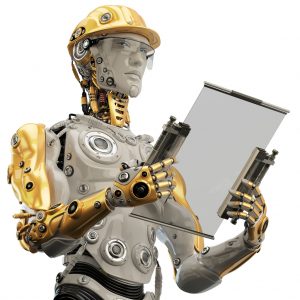Join our online community and be inspired to achieve your goals!
VIEW OUR FACEBOOK PAGE9 skills you’ll need for the jobs of the future

The jobs of today are very different to those of our parents and grandparents, so where will we be 20 years from now? And how can we make sure we’re still employable? As new jobs emerge, others become obsolete. It can be a challenge to stay ahead, but ensuring your knowledge and skills remain current and marketable is an important career move. Here are some of the key job skills we think you’ll need for the future.
- Tech know-how: Proficiency with technology is now expected in most jobs. Think about how a GP uses technology today compared to 10 or 20 years ago. The use of mobile technology has also dramatically increased, and the globalisation of many markets means that working with technology rather than against it is key. The more flexible you are in navigating these changes, and in becoming proficient in using new technology, the easier your work life will be.
- Critical thinking and problem solving: The future will have problems we’ve never experienced. The ability to think outside the box, see the big picture, analyse different situations, rearrange information to identify explanations and make decisions on the fly will put you in a great position.
- Creativity: We know that workers with creative-thinking and imagination skills will remain in demand. Examples include jobs where you need to create original content, manage others and/or interact with stakeholders, think unconventionally, or apply expertise to make decisions or innovate. Creativity isn’t limited to traditional artistic pursuits such as art, music and writing. In this context, it’s about innovation and resourcefulness – the ability to pull together disparate information and conceive viable solutions and approaches.
- Adaptability: The ability to quickly change, develop new skills, take on new responsibilities and work with automation or machines is important. Having flexibility to move to other areas will drive future career success, and acquiring the necessary skills or retraining in other areas will be your responsibility.
- Information analysis: In our current information age, we generate more data than we know what to do with. While access to the information we collect has significantly improved in recent times, the ability to analyse it through a critical lens to come up with meaningful observations that drive decisions is key.
- People skills and collaboration: While technology will eventually take over many areas, human interaction will never disappear, so the ability to work with people will remain important. Success will require you to ask questions, listen, interpret needs and work cooperatively with others. Learning how to use new communication and collaboration platforms will also be vital.
- SMAC: You’ve probably heard of STEM (science, technology, engineering and mathematics), but SMAC (social, mobile, analytics and cloud) is fairly new. Learning how to leverage these platforms in your daily work will help you stand out in the future job market.
- Cultural acumen: The modern workplace is full of remote employees, global offices and flexible contracts. For many of us, our workday reality is living in one country and working virtually with people in other parts of the world. Being able to understand and appreciate cultural differences and social interaction will be essential.
- Networking: Most experts agree that networking and word of mouth will be more important in securing jobs in the future. While networking is not new, technological advances mean the way we do it is vastly different to 10 years ago. Keep track of everyone you meet, stay in touch, join professional networking groups and take advantage of LinkedIn.
Are you always listening, learning and planning? Continuous learning of new skills is essential for job success in the future. Take on new responsibilities, remain flexible, embrace our rapidly changing world and use any setbacks as learning experiences. That way, you’ll find yourself in the best position to capitalise on opportunities as they arise.
Would you like assistance from a Career Coach to identify areas where you might be able to improve your skillset to create your dream career? Or perhaps you’d like some help developing a tailored Job Search Strategy to secure your future? To find out more, read about our Services.

